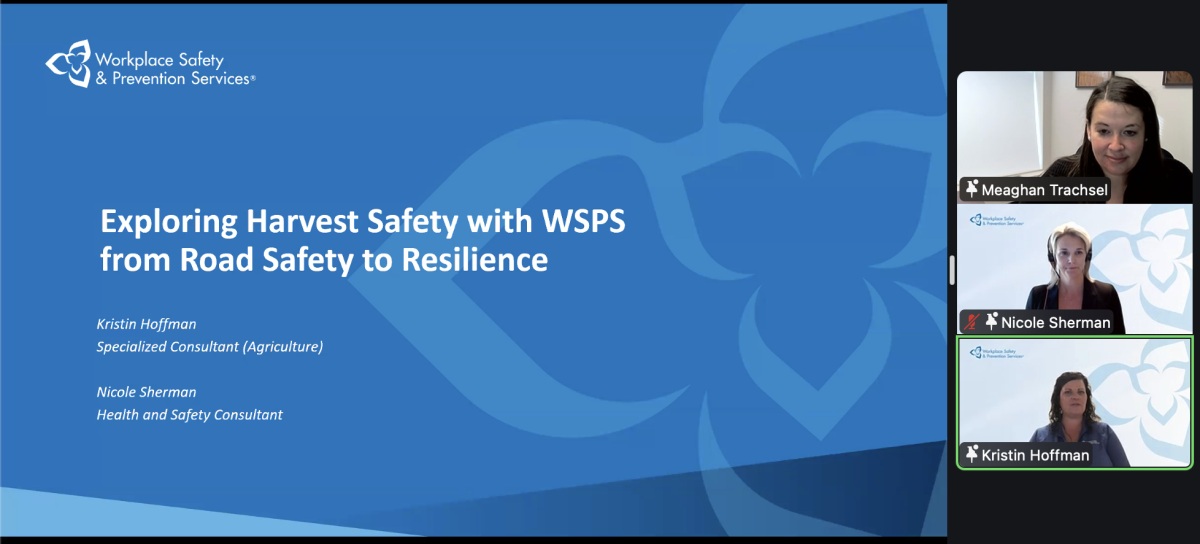Saskatchewan farmers have beaten Ottawa’s expectations for the Environmental Farm Plan (EFP) program by almost 40 per cent so far.
Federal Agriculture Minister Gerry Ritz and Mark Wartman, his provincial counterpart, said yesterday in Regina that 9,000 Saskatchewan farms have completed EFPs in the past two years, well past the program’s provincial goal of 6,500 by the end of March 2008.
The ministers said that number is expected to be close to 10,000 by March 31, the end date for both the EFP program and the federal/provincial Agricultural Policy Framework (APF) that funded it.
Read Also

Exploring Harvest Safety
Kristin Hoffman of WSPS explains measures for increased farm safety around harvest season
The ministers said the program’s success in this province was largely the result of “strong producer leadership and guidance.”
EFPs are billed as voluntary, confidential self-assessment tools for farmers to “raise awareness about environmental opportunities and risks” on their farms. Farmers develop their own plans, with the help of a facilitator and peer review committee, for management practices that will reduce environmental risk on the farm.
A completed EFP is also a requirement for any farmer who wants to apply for cost-shared funding and/or technical assistance to introduce new environmental best management practices (BMPs) on his or her farm. Examples of eligible BMPs include improved manure storage and handling, erosion control structures and improved cropping systems. Saskatchewan has a list of 70 such BMPs.
EFP program delivery in Saskatchewan has been handled by the Provincial Council of Agriculture Development and Diversification Boards and by the First Nations Agricultural Council of Saskatchewan.














